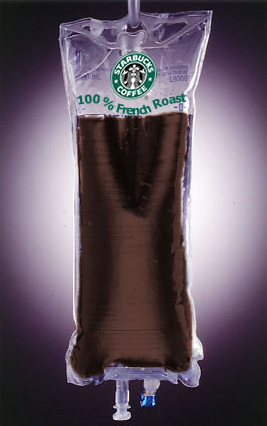
Or don’t.
A little article from Everydayhealth.com, entitled “Boosting Your Willpower,” caught my eye the other day, and, lacking the willpower to resist reading articles about boosting my willpower, I read it. It reminded me of some of the stuff that we’ve been posting about ego depletion recently.
 The gist of the article is: do these things (start small, start slow, build a support network, change your environment), and you will slowly boost you willpower, until, subsequently, you can conquer bad/develop good habits. It’s that easy. Period. A total “duh.”
The gist of the article is: do these things (start small, start slow, build a support network, change your environment), and you will slowly boost you willpower, until, subsequently, you can conquer bad/develop good habits. It’s that easy. Period. A total “duh.”
But is it that easy?
As a theologian of the Cross, I can’t help but answer with an emphatic No.
The basic premise (more willpower, more success) relies on our first having sufficient willpower to jump-start change. What if I actually need the intended increase in willpower to begin taking the necessary steps to develop more willpower? And, if I have that, then I why haven’t I already caused myself to change? It’s a horribly vicious thought cycle.
Confused yet? I might be.
Let me tease it out a little more. The article suggests that in order to change I need to seek the source for change within myself. So, if I want to stop drinking coffee, I need to decide/choose to “start with water” over the coffee. But the problem is not that I’m thirsty, but that I want coffee. I haven’t satisfied the craving for coffee with water, rather, I’ve merely added a glass of water to my liquid intake (water is great, but it’s not coffee). I will still want the coffee, though now I may not be thirsty. Nothing has “changed.”
 Keeping with the example of coffee, to suggest that starting with water first thing in the morning will lead to the eventual extinction of drinking coffee is a statement that places high importance on the act. I will become what I do. In some ways, I guess, I am what I do. If anything, the Law (what I know I should do) reveals to me my failures. It shows me that I’m incapable of changing myself (enough), that I am a sinner. Rather than desiring the Good, I abhor it; I prefer that nothing changes. Inertia is what defines me.
Keeping with the example of coffee, to suggest that starting with water first thing in the morning will lead to the eventual extinction of drinking coffee is a statement that places high importance on the act. I will become what I do. In some ways, I guess, I am what I do. If anything, the Law (what I know I should do) reveals to me my failures. It shows me that I’m incapable of changing myself (enough), that I am a sinner. Rather than desiring the Good, I abhor it; I prefer that nothing changes. Inertia is what defines me.
But the gospel tells me something more–something more true and more powerful than the word of the law: in spite of and apart from my failure, incapability, and sin, I am justified by faith. I am loved by God, declared beloved when I am, frankly, unlovable.
But, wait, isn’t this post about change? Yes, and it still is. In fact, it’s right there in the declaration of justification and the discussion of the cross. That’s where I encounter what it is I need to experience even the smallest bit of change, the force I need to be moved. I need not more of myself or a stronger self, but less of myself and a weaker self. I need to be turned away from myself. I need the life-giving, dynamic, creative word that is the Gospel. I need to hear that I am loved before I can begin to love. If I am to change, it has to come from without, from an Other who has loved me with no strings attached.
Change occurs. Yet in my experience and according to the Gospel, it seldom occurs because I’ve mustered up the right amount of strength and/or cultivated my willpower. It happens because I’ve been loved, unconditionally, by God, my Saviour, the lover of my soul.

COMMENTS
Leave a Reply












